Last Updated on September 2, 2024 by admin
Introduction to Siromus 1mg Tablet
Siromus , medically known as Sirolimus, is an immunosuppressant drug that plays a critical role in the field of organ transplantation. Originating from a compound discovered in the soil of Easter Island, Siromus has become a cornerstone in modern medicine for its ability to curb the body’s immune system. The primary purpose of Siromus is to prevent the rejection of transplanted organs, such as kidneys, by modulating the immune response, thereby enhancing the longevity and success rate of transplants.
This pharmaceutical agent belongs to a class of drugs called mTOR inhibitors. mTOR, or the mechanistic target of rapamycin, is a protein that regulates cell growth, proliferation, and survival. By inhibiting mTOR, Siromus effectively dampens the immune system’s activity, reducing the likelihood of organ rejection while allowing the transplanted organ to function properly. Its efficacy and safety profile have made it an indispensable drug within the immunosuppressive therapy regimen.
Originally derived from a soil bacterium (Streptomyces hygroscopicus) found on Easter Island, Siromus was initially noted for its antifungal properties. However, researchers soon discovered its profound immunosuppressive capabilities. Subsequent clinical trials solidified its status as a vital medication for transplant patients. The Federal Drug Administration (FDA) approved Sirolimus for clinical use in 1999, and since then, it has become a mainstay in transplant medicine.
By providing a robust shield against organ rejection, Siromus allows patients to maintain a healthier and more active lifestyle post-transplantation. It not only enhances the success rates of transplants but also contributes immensely to the improved quality and longevity of life for recipients. Understanding Siromus’s origins, medical importance, and primary functions offers a thorough insight into why this medication is pivotal in post-transplant care.
USES OF SIROMUS 1mg
Siromus, also known by its generic name sirolimus, is primarily prescribed to prevent organ rejection in patients who have undergone kidney transplants. Its effectiveness in this regard is attributable to its ability to inhibit the immune system, thereby reducing the risk of the body rejecting the newly transplanted kidney. By interfering with T-cell activation and proliferation, Siromus plays a critical role in ensuring the longevity and acceptance of the transplanted organ.
In addition to its primary use in kidney transplantation, Siromus may have several off-label applications that extend beyond the prevention of organ rejection. Some healthcare professionals have explored its potential in treating certain autoimmune conditions and some forms of cancer, due to its immunosuppressive and anti-proliferative properties. For instance, it has been used in research settings for conditions such as lymphangioleiomyomatosis (LAM) and tuberous sclerosis complex (TSC), both of which involve abnormal growths in tissues.
Another area of potential off-label use is in the prevention of coronary artery restenosis following stent implantation. Due to its ability to inhibit cell proliferation, Siromus can reduce the likelihood of re-narrowing of the artery, a common complication post-angioplasty. While these uses are not as well-established as its primary purpose, ongoing studies and clinical trials continue to examine the broader therapeutic applications of Siromus.
It is important to note that any off-label uses of Siromus should only be conducted under the strict supervision of a qualified healthcare provider. Given the potency of the drug and its potential side effects, careful consideration and medical guidance are essential when it is prescribed for purposes other than kidney transplantation.
Directions for Use
Siromus (sirolimus) is available in two primary dosage forms: tablets and oral solution. Each dosage form is designed to meet individual patient needs and preferences, ensuring that the drug can be administered effectively and conveniently.
When starting on Siromus, it is crucial to follow the dosing schedule prescribed by your healthcare provider, who will tailor the dosage based on various factors, including the specific condition being treated, the patient’s response to treatment, and any other concomitant medications. Typically, the initial dosage for adult patients is a loading dose of 6 mg, followed by a maintenance dose of 2 mg per day. However, these dosages may vary, and it is essential to adhere strictly to your physician’s instructions.
For those taking Siromus in tablet form, the tablets should be swallowed whole with a glass of water. Avoid crushing, chewing, or splitting the tablets, as this can affect the drug’s efficacy and release mechanisms. On the other hand, the oral solution should be measured accurately using the provided dosing syringe and should be mixed with 2 ounces of water or orange juice. It is important to consume the solution immediately after preparation.
Consistency in terms of timing and the relation to meals is vital when taking Siromus. Whether taking it with or without food, it is recommended to maintain the same timing and conditions daily to ensure stable drug levels in the bloodstream. Missing a dose should be addressed by contacting a healthcare provider for guidance on the appropriate steps, rather than making any adjustments independently.
Finally, any changes in dosing or discontinuation of Siromus should not be made without consulting a healthcare professional. Abrupt alterations can lead to undesirable health consequences, including reduced drug efficacy or increased risk of side effects. Strict adherence to the prescribed dosage and routine monitoring under medical supervision are key components of a safe and effective treatment with Siromus.
BENEFITS OF SIROMUS 1mg
- In Prevention of kidney transplant rejection
Siromus, also known by its generic name sirolimus, plays a critical role in modern transplant medicine. One of the primary benefits of Siromus is its effectiveness in preventing organ rejection. Organ rejection is a genuine risk for transplant patients, and the immunosuppressive properties of Siromus significantly reduce this probability. By inhibiting the body’s immune response, Siromus helps ensure that the transplanted organ remains functional and is not attacked by the recipient’s immune system. This capacity to prevent rejection potentially leads to long-term survival and an improved quality of life for transplant recipients.
In addition to its primary use in preventing organ rejection, Siromus aids in maintaining an optimal balance within the immune system. Unlike some other immunosuppressants that can cause broad immune suppression, Siromus is known for its more targeted approach. This characteristic is particularly beneficial because it allows the immune system to retain some of its protective functions, reducing the risk of infections and other complications associated with weakened immunity.
Furthermore, Siromus has been observed to have anti-proliferative effects, making it beneficial in certain cases of renal transplant. This drug can inhibit the growth of certain cells, which can be advantageous not only in preventing organ rejection but also in managing conditions that may arise post-transplant. The ability of Siromus to provide a multifaceted approach in transplant care underscores its valuable role in long-term patient management.
Overall, Siromus contributes significantly to the overall health and longevity of transplant patients by offering effective organ rejection prevention, maintaining immune system balance, and providing additional therapeutic benefits. This combination of effects makes Siromus a vital component in the repertoire of transplant medications, ensuring that patients can lead healthier and more stable lives post-transplant.
Storage Instructions
Proper storage of Siromus is crucial to maintaining its efficacy and ensuring its safety for use. Siromus, a vital medication often prescribed for specific medical conditions, requires attentive care to prevent degradation. Here are essential guidelines for storing Siromus effectively.
The recommended storage temperature for Siromus is between 20°C to 25°C (68°F to 77°F). It is imperative to avoid locations where temperatures fluctuate significantly, such as bathrooms or near kitchen appliances that generate heat. If exposed to temperatures outside this range, the stability and potency of the medication could be compromised, affecting its effectiveness.
Another critical aspect of storing Siromus is protecting it from light and moisture. Store the medication in its original container, ensuring that the lid is tightly closed. Place the container in a cool, dry place, away from direct sunlight. Bathrooms and other humid environments should be avoided as they can introduce moisture to the medication, leading to premature degradation.
If Siromus is inadvertently exposed to incorrect storage conditions—such as high temperatures, excessive light, or moisture—it is essential to consult a pharmacist or healthcare provider. They can provide guidance on whether the medication is still safe to use or if a replacement is necessary.
Additionally, keep Siromus out of reach of children and pets to prevent accidental ingestion. A secure, elevated storage space is recommended to ensure safety. Storing Siromus properly not only preserves its therapeutic benefits but also safeguards against potential health risks associated with improper use.
By adhering to these storage guidelines, patients can maintain the integrity and effectiveness of their Siromus medication, ensuring its optimal performance when needed.
Medicinal Benefits of Siromus
Siromus, known scientifically as sirolimus, offers a spectrum of medicinal benefits that extend well beyond its primary use in preventing organ rejection post-transplantation. This immunosuppressive agent has shown promising potential in the treatment of various conditions due to its unique mechanism of action. It operates by inhibiting a protein known as mTOR (mammalian target of rapamycin), which is crucial in cell growth, proliferation, and survival. This feature not only helps preserve transplanted organs but also opens up avenues for its application in other medical areas.
One of the noteworthy medicinal benefits of Siromus is its potential in oncology. Research has indicated that the mTOR pathway is often dysregulated in many types of cancers, making sirolimus a viable candidate to inhibit tumor growth and proliferation. Several clinical trials are underway to better understand Siromus’s efficacy as an adjuvant therapy in cancer treatment, particularly in renal cell carcinoma and certain types of lymphomas.
Another significant application of Siromus is in the management of lymphangioleiomyomatosis (LAM), a rare progressive lung disease that typically affects women of childbearing age. The FDA has recognized Siromus as an effective therapeutic option for LAM due to its ability to stabilize lung function and reduce the size of abnormal cell growths associated with the disease.
Apart from these applications, Siromus has also demonstrated potential benefits in cardiovascular medicine. Studies suggest that it can be used to prevent the narrowing of blood vessels following cardiac procedures, thus playing a crucial role in maintaining vascular health. The anti-proliferative properties of sirolimus make it a valuable tool in preventing restenosis, a common complication wherein blood vessels become re-narrowed due to excessive tissue growth after being treated for blockages.
In summary, the medicinal benefits of Siromus are extensive and multifaceted. Its ability to modulate cellular mechanisms makes it a versatile drug that can be effectively harnessed for treating a variety of medical conditions beyond organ transplantation.
Drug Warnings and Interactions
When considering Siromus as part of a treatment regimen, it is imperative to be cognizant of its associated warnings and interactions. Siromus, also known as sirolimus, can present several significant side effects and contraindications, necessitating a thorough discussion with a healthcare provider before usage. One of the primary concerns is the potential for immunosuppression, which can elevate the risk of infections. Patients should be monitored for fever, chills, and other signs of infection.
Major side effects of Siromus include, but are not limited to, increased susceptibility to infections, liver impairment, and lung complications. Siromus can also contribute to a heightened risk of certain cancers, particularly skin cancer and lymphomas. Therefore, patients are advised to avoid excessive sun exposure and utilize sunscreen while on this medication. Furthermore, individuals with a history of liver or lung disease should consult their healthcare professional, as these conditions could exacerbate side effects or necessitate dosage adjustments.
Siromus’s interactions with other drugs can significantly impact its efficacy and safety profile. Noteworthy drug interactions include those with strong CYP3A4 inhibitors like ketoconazole, which can increase sirolimus levels in the blood, leading to potential toxicity. Conversely, CYP3A4 inducers such as rifampin can reduce Siromus’s effectiveness. It is equally imperative to avoid the concurrent use of other immunosuppressive agents unless specifically directed by a healthcare provider.
Patients should also exercise caution when combining Siromus with herbal supplements, particularly St. John’s Wort, which can significantly reduce the drug’s effectiveness through metabolic induction. Additionally, certain food and drink, such as grapefruit and grapefruit juice, can interfere with drug metabolism, hence should be avoided.
Utilizing a comprehensive drug interactions checker list and maintaining open communication with healthcare providers ensure a safer treatment experience with Siromus. This meticulous approach helps optimize therapeutic outcomes while minimizing potential risks associated with this potent medication.
Side Effects of Siromus
Siromus, known generically as sirolimus, is a medication primarily used to prevent organ rejection in transplant patients. While it offers significant benefits, it is crucial to be aware of its potential side effects to ensure the user’s safety and well-being.
Common side effects associated with Siromus include mouth sores, diarrhea, headache, and nausea. These symptoms are often mild but can become bothersome over time. Patients might also experience joint pain or swelling and rash. While these adverse effects are relatively frequent, they generally do not pose severe health risks.
Less common but more serious side effects can also occur. These include elevated cholesterol or triglyceride levels, which could necessitate dietary changes or medication adjustments. Patients using Siromus might also encounter respiratory complications such as chest pain, shortness of breath, or persistent cough. Furthermore, impaired wound healing, liver dysfunction, and an increased risk of infections due to immunosuppression are critical concerns associated with Siromus therapy.
Immediate medical consultation is essential if users experience severe reactions. These could include symptoms of a severe allergic reaction, such as hives, swelling of the face, lips, tongue, or throat, and difficulty breathing. Other serious side effects warranting urgent attention include severe abdominal pain, significant increase in body weight, unusual bleeding or bruising, and signs of a serious infection like fever or chills.
It is imperative for individuals taking Siromus to maintain open communication with their healthcare providers. Regular monitoring and blood tests can help manage and mitigate potential side effects, ensuring the medication’s effectiveness while safeguarding the patient’s health. By providing detailed information and prompt access to medical resources, patients can better navigate the complexities of Siromus therapy.
How to Use Siromus Effectively
Integrating Siromus into a patient’s daily routine requires careful planning and consistency to achieve optimal therapeutic results. Patients should ideally take Siromus at the same time each day, aligning it with regular activities such as meals, to create a manageable routine and ensure better adherence. A consistent schedule helps maintain stable blood levels of the medication, crucial for its effectiveness.
When dosing Siromus, it is paramount to follow the prescribing physician’s instructions closely. The medication can be taken with or without food, but it is vital to choose one method and stick with it to avoid fluctuations in drug absorption. Using a pill organizer can help patients remember their daily dose and avoid missed medications.
In case a dose is missed, patients should take the missed dose as soon as they remember. However, if it is almost time for the next dose, they should skip the missed dose and resume their regular dosing schedule. Doubling up on doses to compensate for a missed one can increase the risk of side effects, which should be scrupulously avoided.
Patients should also be mindful of drug interactions when taking Siromus. Certain medications, including antibiotics, antifungals, and anticonvulsants, can influence Siromus’s effectiveness and safety. Therefore, it is imperative to inform healthcare providers about all other medications and supplements a patient is taking. Regular blood tests as advised by the healthcare provider are essential to monitor the response to Siromus and adjust the dosage if necessary.
Avoiding common pitfalls, such as inconsistent dosing, improper handling of missed doses, and not reporting other medications, can significantly enhance the effectiveness of Siromus. Open communication with healthcare professionals and a proactive approach in managing one’s medication regime are key steps in achieving the desired therapeutic outcomes while minimizing potential risks.
How Siromus Works
Siromus, also known by its generic name sirolimus, is a potent immunosuppressive medication primarily used to prevent organ rejection in transplant patients. Understanding its mechanism requires a look at both its pharmacodynamics and pharmacokinetics—how the drug influences the body at a molecular level and how the body affects the drug, respectively.
Pharmacodynamically, Siromus is an mTOR (mechanistic target of rapamycin) inhibitor. The mTOR pathway is a crucial regulator of cell growth, proliferation, and survival. By inhibiting this pathway, Siromus effectively reduces the activity of T-lymphocytes and B-lymphocytes, which are white blood cells central to the immune response. Consequently, this suppression aids in preventing the body’s immune system from attacking foreign tissues, such as a transplanted organ.
At the biochemical level, Siromus forms a complex with an intracellular protein called FKBP-12 (FK506 binding protein). This complex, in turn, interferes with mTOR, blocking a cascade of molecular events crucial for cell cycle progression. This inhibition not only reduces potential organ rejection but also exhibits anti-proliferative properties beneficial in other medical conditions, such as certain cancers.
In terms of pharmacokinetics, Siromus is absorbed in the gastrointestinal tract, where it undergoes extensive first-pass metabolism in the liver. It is primarily metabolized by the CYP3A4 enzyme and transported by P-glycoprotein. The resulting metabolites are then excreted mostly via the feces. The half-life of Siromus is relatively long, averaging around 62 hours, which allows for consistent immunosuppressive effects with once-daily dosing. However, it’s important to note that factors such as liver function and interactions with other drugs can affect its pharmacokinetic profile.
Thus, the dual aspects of how Siromus works—its ability to inhibit mTOR and its unique pharmacokinetic properties—contribute to its efficacy in preventing organ rejection. By curtailing specific cellular pathways, Siromus ensures a balanced yet potent suppression of the immune system, pivotal for transplant success.
General Warnings and Safety Advice
When it comes to the use of Siromus, there are several general warnings and safety considerations that must be taken into account. First and foremost, it is crucial to understand that Siromus may pose significant risks for pregnant and breastfeeding women. Due to the potential for serious harms to fetal development, women who are pregnant should avoid using Siromus. Similarly, breastfeeding mothers are advised to either discontinue the medication or choose an alternative way to provide nutrition for their infants.
Siromus is also not recommended for pediatric patients under the age of 13, as the safety and effectiveness of this medication have not been established in this age group. Elderly patients should use Siromus with caution, given the increased likelihood of age-related renal, hepatic, or cardiac issues, which could exacerbate the adverse effects of the drug.
Individuals with pre-existing health conditions—such as liver disease, kidney disease, or any form of cancer—must consult their healthcare provider before starting Siromus. These conditions could potentially interact negatively with the medication, leading to severe side effects or reduced efficacy.
Alongside specific health concerns, there are some general lifestyle advice to follow while taking Siromus. Patients should avoid live vaccinations due to the immunosuppressive nature of the medication, which may render the vaccine ineffective or increase the risk of contracting the virus from the vaccine itself. Additionally, exposure to sunlight and UV light should be minimized through the use of protective clothing and sunscreen, as Siromus can increase skin sensitivity and the risk of skin cancer.
Overall, adhering to these safety guidelines and warnings ensures that the risks associated with Siromus are minimized, thereby optimizing the therapeutic benefits of the medication. Always consult your healthcare provider for personalized advice tailored to your specific health needs.
Dietary Considerations While Using Siromus
Dietary considerations play a significant role in optimizing the efficacy and safety of Siromus (sirolimus). Understanding the interaction between various foods, beverages, and Siromus is essential for individuals undergoing treatment. One of the primary dietary concerns is the consumption of grapefruit and grapefruit juice. These can lead to increased levels of sirolimus in the blood, potentially causing toxicity. It is, therefore, recommended to avoid grapefruit and related products entirely while on this medication.
Alcohol is another substance that individuals on Siromus might need to limit or avoid. Alcohol can interfere with the immune system and can exacerbate some side effects of Siromus, including liver problems. Consulting with a healthcare provider regarding the safety of alcohol consumption is crucial.
Beyond specific food and beverage restrictions, maintaining a balanced diet is equally important. A diet rich in fruits, vegetables, lean proteins, and whole grains helps sustain overall health and wellness. Proper nutrition supports the immune system and ensures that the body has the necessary resources to respond to the medication effectively.
Nutritional supplements also warrant consideration. Some supplements might interact with Siromus, either diminishing its effectiveness or increasing its side effects. For instance, supplements containing St. John’s Wort should be avoided, as they can significantly lower sirolimus levels in the blood. Conversely, certain supplements might be beneficial, such as those providing additional antioxidant support. Nevertheless, any supplement use should be discussed with a healthcare provider to tailor individual nutritional needs without compromising drug efficacy.
Incorporating these dietary guidelines not only supports the therapeutic goals of Siromus but also contributes to better overall health management. Regular consultations with healthcare providers and dietitians can provide personalized advice, ensuring that dietary practices align with the treatment plan.
SIDE EFFECTS OF SIROMUS 1mg
Most side effects do not require any medical attention and disappear as your body adjusts to the medicine. Consult your doctor if they persist or if you’re worried about them
Common side effects of Siromus 1mg
- Nausea
- Increased blood lipid level
- Low blood platelets
- Headache
- Abdominal pain
- Fever
- Anemia (low number of red blood cells)
- Urinary tract infection
- Diarrhea
- High blood pressure
- Increased creatinine level in blood
- Joint pain
- Edema (swelling)
HOW TO USE SIROMUS 1mg
Take Siromus Tablet in the dose and duration as advised by your doctor. Swallow it as a whole. Do not chew, crush or break it. Siromus Tablet may be taken with or without food, but it is better to take it at a fixed time.
HOW SIROMUS 1mg WORKS?
Siromus Tablet is an immunosuppressant. It works by suppressing your body’s immune response following transplant of an organ (eg. liver, kidney, heart). This helps your body to accept the new organ as if it were your own.
SAFETY ADVICE
warnings
![]() Alcohol
Alcohol
CONSULT YOUR DOCTOR
It is not known whether it is safe to consume alcohol with Siromus Tablet. Please consult your doctor.
warnings
![]() Pregnancy
Pregnancy
CONSULT YOUR DOCTOR
Siromus Tablet may be unsafe to use during pregnancy. Although there are limited studies in humans, animal studies have shown harmful effects on the developing baby. Your doctor will weigh the benefits and any potential risks before prescribing it to you. Please consult your doctor.
warnings
![]() Breastfeeding
Breastfeeding
CONSULT YOUR DOCTOR
Siromus Tablet is probably unsafe to use during breastfeeding. Limited human data suggests that the drug may pass into the breastmilk and harm the baby.
warnings
![]() Driving
Driving
SAFE
Siromus Tablet does not usually affect your ability to drive.
warnings
![]() Kidney
Kidney
SAFE IF PRESCRIBED
Siromus 1mg Tablet is safe to use in patients with kidney disease. No dose adjustment of Siromus Tablet is recommended.
warnings
![]() Liver
Liver
CAUTION
Siromus Tablet should be used with caution in patients with severe liver disease. Dose adjustment of Siromus Tablet may be needed. Please consult your doctor.
Dose adjustment is not recommended in patients with mild to moderate liver disease.
warnings
![]() CHILDREN CAUTION
CHILDREN CAUTION
UNSAFE
Siromus Tablet is not recommended for use in children and adolescents below 18 years.
![]() expert advice
expert advice
- Siromus Tablet is used to prevent organ rejection following a kidney transplant operation.
- Avoid grapefruit juice while you are on treatment with this medicine. This is because a chemical in grapefruit juice increases the amount of Siromus Tablet in your bloodstream. This makes side-effects more likely.
- There is a possibility of a slight increase in the risk of skin cancer with Siromus Tablet. Do not use sunbeds, and avoid strong sunlight or use a sun cream with a high sun protection factor (SPF of at least 15).
- If you have diabetes mellitus, Siromus Tablet may affect your blood sugar levels. Monitor your sugar level regularly and report any extreme changes to your doctor.
 FOOD AND DRINK
FOOD AND DRINK
- Eat a healthy and balanced diet. Eat vitamin and nutrient-rich food such as dark-green, yellow, orange, and red vegetables and fruit as it helps to boost your immune system. Option for lean protein and whole grains.
- Avoid eating raw meat and eggs. Consume properly boiled and cooked meat, poultry, or seafood.
- Eat bland and low-fat foods and avoid spicy or oily foods if you experience nausea or vomiting.
- Try to reduce emotional and physical stress by spending time with family or whatever makes you happy.
- Drink more fluids and avoid alcoholic beverages to prevent dehydration.
Wash your hands properly before and after eating. - Make sure you sleep at least 8 hours a day.
FAQs ABOUT SIROMUS TABLET
Q: Does SIROMUS 1MG affect male fertility?
A: Decreased sperm count has been associated with the use of SIROMUS TABLET and it usually returns to normal once treatment is discontinued. Consult your doctor for further queries.
Q: What if I miss a dose of SIROMUS 1MG?
A: If you miss a dose of SIROMUS TABLET, take it as soon as you remember. However, skip that dose if it’s almost time for the next one. Do not take SIROMUS TABLET two times to make up for the missed dose. Remember to always take SIROMUS TABLET and ciclosporin approximately 4 hours apart.
Q: Can I stop taking SIROMUS 1MG on my own?
A: Do not stop taking SIROMUS TABLET unless your doctor tells you to, as doing so might increase the risk of losing your transplant. Consult your doctor for further queries.
Q: What are the precautionary measures to follow while taking SIROMUS 1MG?
A: Do not drink grapefruit juice while taking SIROMUS TABLET. Inform your doctor if you have liver problem, body mass index more than 30 kg/m2, intolerance to certain sugars or had a previously failed kidney transplant. Patients should also tell if they are pregnant, breast-feeding or allergic to anything.
Q: Can SIROMUS 1MG be given to children?
A: No. SIROMUS TABLET is used for adults and not recommended for children and adolescents below 18 years of age. Consult your child’s doctor for advice. The physician will determine a proper dose or select a suitable alternative treatment for your child.
Some More FAQs About Siromus 1mg (Sirolimus) Tablets
Q1: What is Siromus 1mg used for?
A: Siromus 1mg, also known as Sirolimus, is primarily used to prevent organ rejection in patients who have undergone a kidney transplant. It works by suppressing the immune system to prevent it from attacking the transplanted organ.
Q2: When is the best time to take Siromus 1mg?
A: Siromus 1mg should be taken consistently at the same time each day, either with or without food. It is crucial to follow your healthcare provider’s instructions on timing to maintain stable drug levels in your body.
Q3: What are the long-term side effects of Siromus 1mg?
A: Long-term use of Siromus 1mg may increase the risk of infections, lymphoma, and other cancers due to its immunosuppressive effects. It can also cause elevated cholesterol and triglycerides, liver function abnormalities, and delayed wound healing.
Q4: Can you provide a review of Siromus 1mg ?
A: Reviews of Siromus 1mg vary among patients. Many find it effective in preventing organ rejection, but some report side effects such as mouth sores, diarrhea, and increased susceptibility to infections. Discussing experiences with your healthcare provider is recommended to manage side effects effectively.
Q5: What are the common uses of Siromus 1mg ?
A: The common use of Siromus 1mg is in kidney transplant patients to prevent organ rejection. It is sometimes used off-label for other transplant types and certain autoimmune conditions, but always under strict medical supervision.
Q6: What is the recommended dosage of Siromus 1mg?
A: The dosage of Siromus 1mg is individualized based on the patient’s needs, typically starting at 2 mg daily for adults. Regular blood tests are required to adjust the dose to maintain the appropriate blood levels.
Q7: Is Siromus 1mg safe to use?
A: Siromus 1mg is generally safe when used as prescribed. However, due to its immunosuppressive nature, it carries risks such as increased infection rates and potential development of malignancies. Close monitoring by a healthcare provider is essential.
Q8: Does Siromus 1mg cure HIV infection?
A: No, Siromus 1mg does not cure HIV infection. It is not an antiviral medication and is used to prevent organ rejection, not to treat viral infections.
Q9: Is Siromus 1mg safe in pregnancy?
A: Siromus 1mg is not recommended during pregnancy unless absolutely necessary, as it can harm the fetus. Women of childbearing age should use effective contraception while on Siromus 1mg and for 12 weeks after discontinuing it.
Q10: Can Siromus 1mg be used in children?
A: Siromus 1mg can be used in pediatric patients, particularly for kidney transplant rejection prevention. However, the dosage and use must be carefully managed by a healthcare provider experienced in treating children.
Q11: What if I miss a dose of Siromus 1mg?
A: If you miss a dose of Siromus 1mg, take it as soon as you remember. If it is almost time for your next dose, skip the missed dose and continue with your regular schedule. Do not double the dose to catch up.
Q12: Can I stop taking Siromus 1mg?
A: Do not stop taking Siromus 1mg without consulting your healthcare provider, as this could increase the risk of organ rejection or other complications.
Q13: What are the uses of Siromus 1mg?
A: In addition to preventing kidney transplant rejection, Siromus 1mg may be used in specific cases of other organ transplants, and sometimes in treating certain rare diseases, though these uses are off-label.
Q14: Are there alternative medications to Siromus 1mg?
A: Yes, alternative immunosuppressive medications include Tacrolimus, Mycophenolate Mofetil, and Cyclosporine. The choice of medication depends on individual patient needs and the specific medical scenario.
Q15: Can Siromus 1mg interact with other medications?
A: Yes, Siromus 1mg can interact with several medications, including certain antibiotics, antifungals, antivirals, and other immunosuppressants. Always inform your healthcare provider of all medications you are taking.
Q16: How long does it take for Siromus 1mg to show results?
A: The effects of Siromus 1mg in preventing organ rejection are ongoing as long as the medication is taken consistently. Regular blood tests are necessary to ensure it is working effectively.
Q17: What precautions should be taken while using Siromus 1mg?
A: Precautions include regular blood tests, avoiding live vaccines, minimizing infection risks, monitoring cholesterol levels, and following dietary restrictions as advised by your healthcare provider.
Q18: Where can I get more information about Siromus 1mg?
A: For more detailed information, consult your healthcare provider, or refer to resources such as the FDA Rapamune Label and MedlinePlus Rapamune.
Q19: What is the success rate of Siromus 1mg in preventing organ rejection?
A: Siromus 1mg has shown a high success rate in preventing organ rejection in kidney transplant patients, particularly when used in combination with other immunosuppressants.
Q20: Is Siromus 1mg safe for long-term use?
A: While Siromus 1mg can be used long-term, it requires ongoing monitoring for potential side effects such as infections, cancers, and metabolic changes.
Q21: Can I drink alcohol while taking Siromus 1mg?
A: Alcohol may interact with Siromus 1mg and affect liver function. It is advisable to discuss alcohol consumption with your healthcare provider.
Q22: Can Siromus 1mg be taken with food?
A: Siromus 1mg can be taken with or without food, but it is important to be consistent in the method of intake to maintain stable drug levels in your body.
Q23: Are there any dietary restrictions while taking Siromus 1mg?
A: Grapefruit and grapefruit juice should be avoided as they can interfere with the metabolism of Siromus 1mg, leading to increased blood levels and potential toxicity.
Q24: Can Siromus 1mg cause weight gain?
A: Weight gain is not a common side effect of Siromus 1mg, but changes in cholesterol levels and metabolism may occur, requiring monitoring.
Q25: How is Siromus 1mg metabolized in the body?
A: Siromus 1mg is metabolized by the liver, specifically by the enzyme CYP3A4. This is why it can interact with other drugs that affect liver enzymes.
REFERENCES:
- KD Tripathi. Immunosuppressant Drugs. Essentials of medical pharmacology. Eighth Edition. 2019. Page – 941.
- Augustine JJ, Bodziak KA, Hricik DE. Use of sirolimus in solid organ transplantation. NIH National Library of Medicine, National center for biotechnology information. Pubmed.gov. 2007. [Accessed on 20th June 2022]. https://pubmed.ncbi.nlm.nih.gov/17335296/
- C G Groth, L Bäckman, J M Morales, R Calne, H Kreis, P Lang, J L Touraine, K Claesson, J M Campistol, D Durand, L Wramner, C Brattström, B Charpentier. Sirolimus (rapamycin)-based therapy in human renal transplantation. NIH National Library of Medicine, National center for biotechnology information. Pubmed.gov. April 1999. [Accessed on 20th June 2022]. https://pubmed.ncbi.nlm.nih.gov/10221490/
- Pfizer Ireland Pharmaceuticals. Electronic Medicines Compendium (EMC). [Revised in July 2021] [Accessed on 20th June 2022]. https://www.medicines.org.uk/emc/files/pil.1368.pdf
- Wyeth Pharmaceuticals Inc. U.S. Food & Drug Administration. [Revised in July 2011] [Accessed on 20th June 2022]. https://www.accessdata.fda.gov/drugsatfda_docs/label/2017/021083s059,021110s076lbl.pd

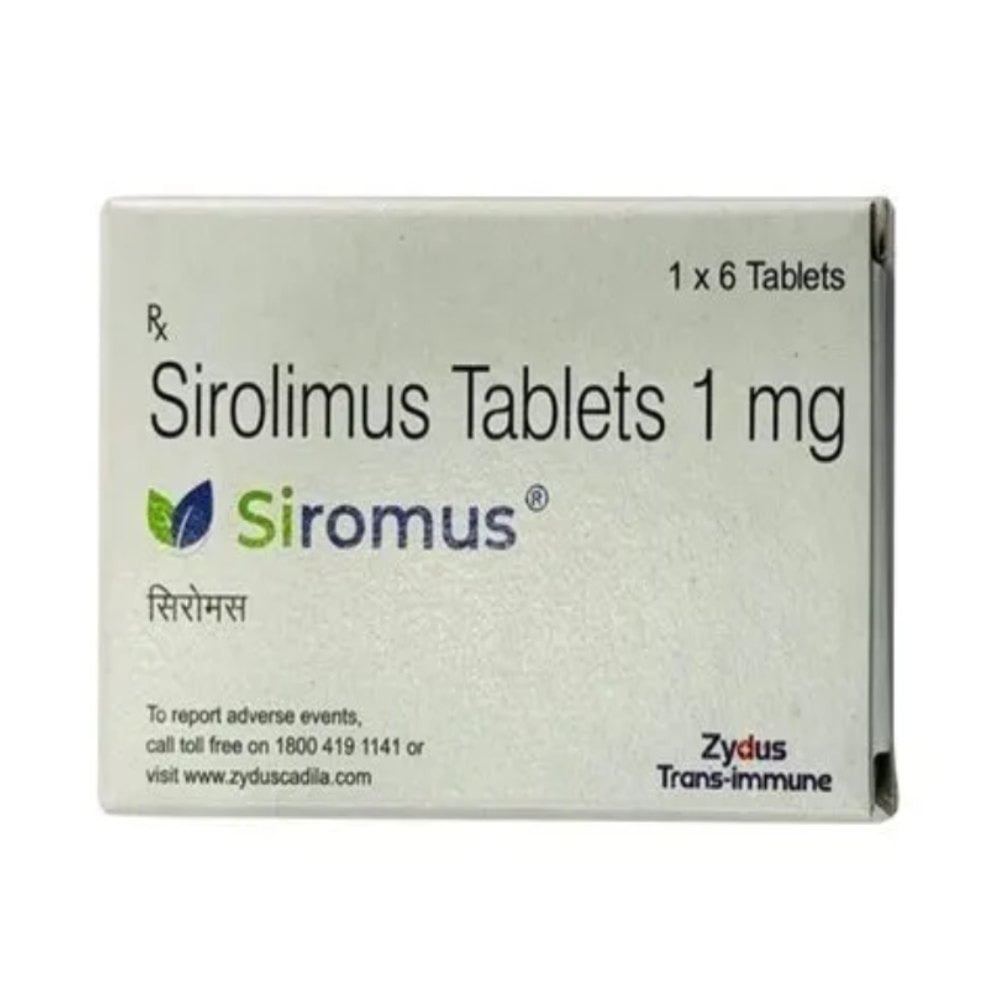
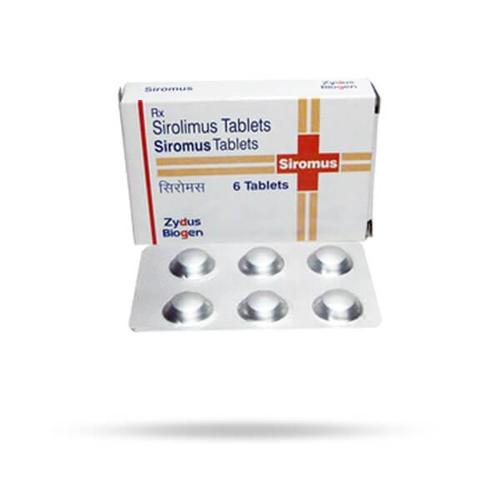
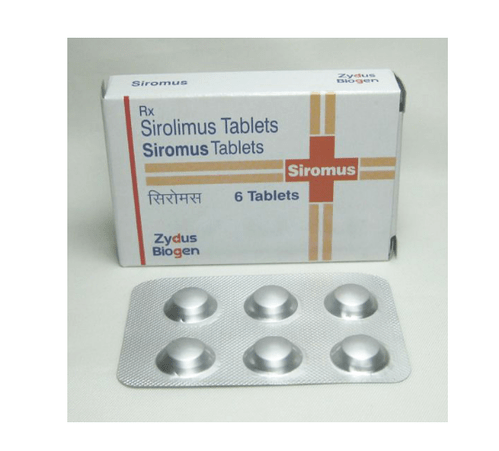

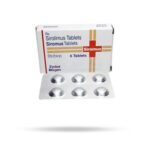
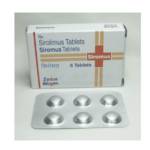
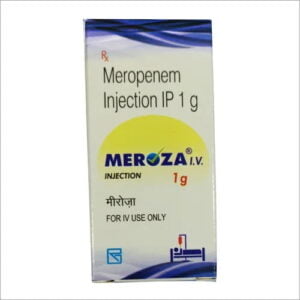

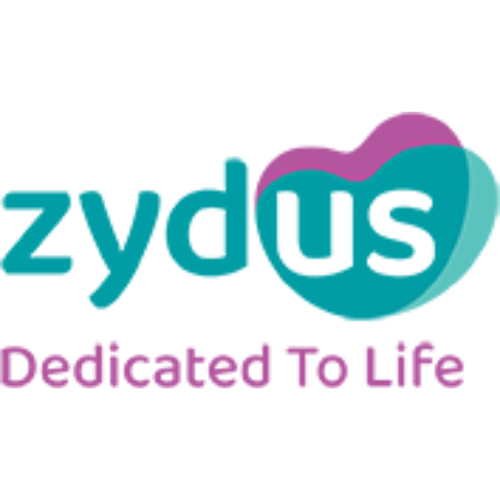
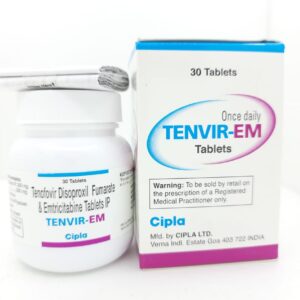
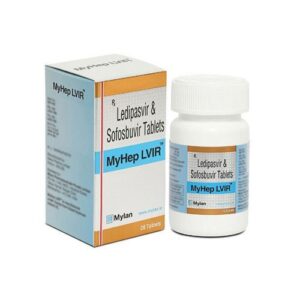
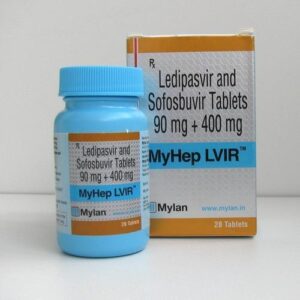
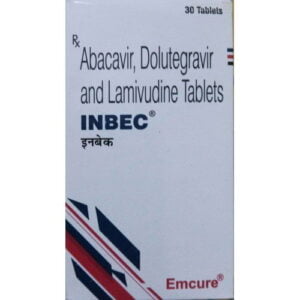
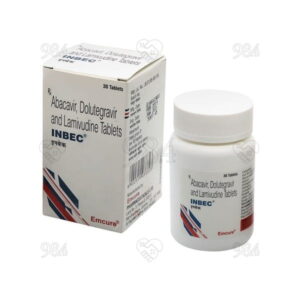
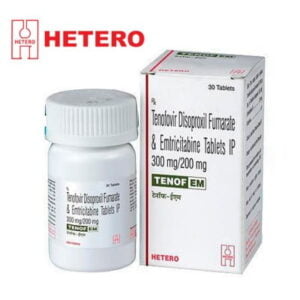
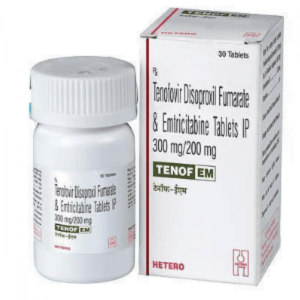
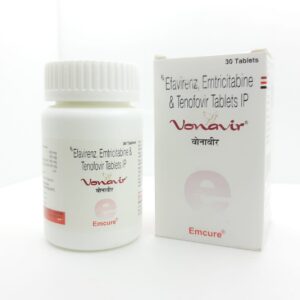
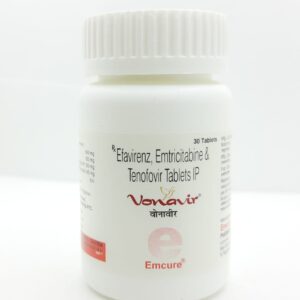
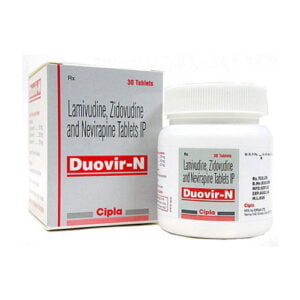
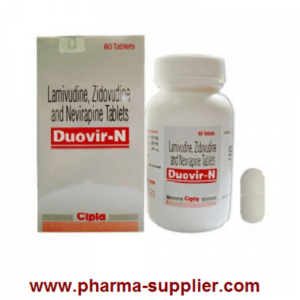
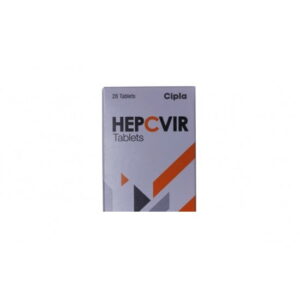
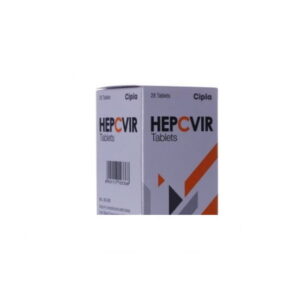
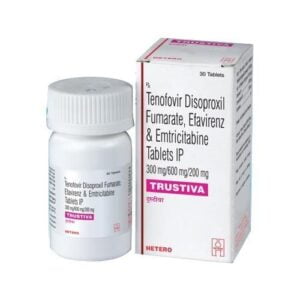
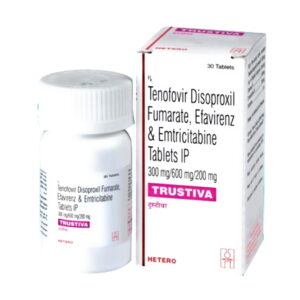

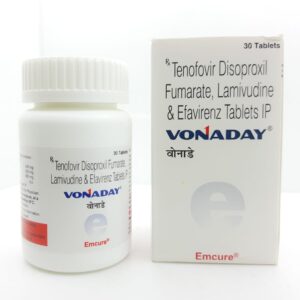
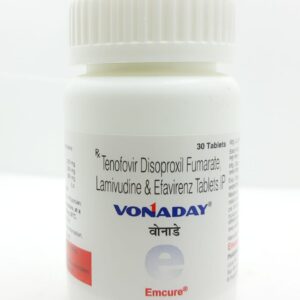
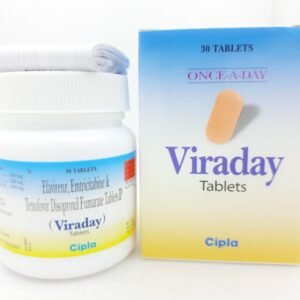

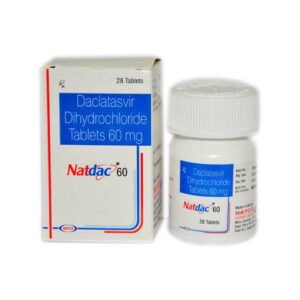
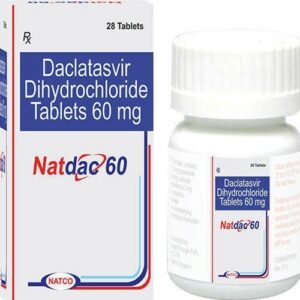
There are no reviews yet.